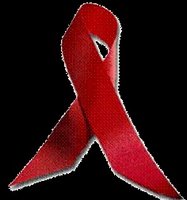I've Been Good
Crisp cool air, brilliant sun,
October in Washington—
trees wearing leaves of ochre, red, brown,
some of them root-strewn on the ground
like discarded dancers’ veils--
except for the leaves of the Gingkoes
their yellowed sails like funereal shrouds
awaiting the day to drop at once
communally to the ground.
A man labors to breathe,
abed in his Capitol Hill home,
semi-conscious, his death
inevitable,
but not immediate.
Sent home to die,
his skin purple from lesions,
his lesions greening their own diseases,
he has no recourse but to wait,
and wait,
and yearn
for death.
His lover can listen no more
to the deep breath in,
to the pause,
to the stir of out-rushing air,
and the protracted pause
that could mean his lover’s passing.
One one thousand,
two one thousand,
three one thousand--
the seconds between breaths growing greater,
his own fears more intense.
The lover slips into his running shoes--
dons sweats and a light jacket.
Each noise from the adjacent bed
a potential signal of death,
creating tension so very great
that he can no longer
bear to be near.
He recalls the doctor’s words:
"There is nothing to do but wait."
Without thought to his route,
he ran,
and ran and ran.
He ran until his breath
was as labored
as that of his dying lover.
He ran until a cross-street
ceased his course and caused
him to bend over, hands on knees,
awaiting the passing of traffic.
While waiting, he looked down
to find a young child,
playing on the sidewalk.
With chalk, she had drawn
her own image,
in pink,
and then wrote words
that held little meaning to him.
"I’ve been good. Please let me go home."
The light changed and on he ran.
Two days passed and
the dying man’s breathing
grew more labored,
his body beginning to shut down,
his life, to wane.
Finally, with grace, he left the earth,
left his bed and his love
to find the peace that his fight
against AIDS
had so deeply earned.
The lover called for the coroner,
finally releasing tears he had held back
through respect for his lover.
He called his friends,
needing their love, their care and support.
Soon a friend suggested a walk
for distraction
from the scene of sadness.
They walked aimlessly
through the city streets
and talked aimlessly
about life--
how unfair,
how sad,
how hurtful,
how cruel,
how very, very real and crisp--
the pain, like a cold rainy day in DC.
A stoplight paused their unplanned passage,
when the lover looked down.
An angel’s sign, a message:
the little girl was gone
forever lost and never known,
but her chalked words remained,
on the concrete of the city sidewalk,
impersonal and meaningless except
to this man who remembered the child.
A forgotten author, she had written
"I’ve been good…..Please let me go home."
Copyright 2004 by Ron Hudson.
Categories: poetry HIV/AIDS








0 Comments:
Post a Comment
<< Home